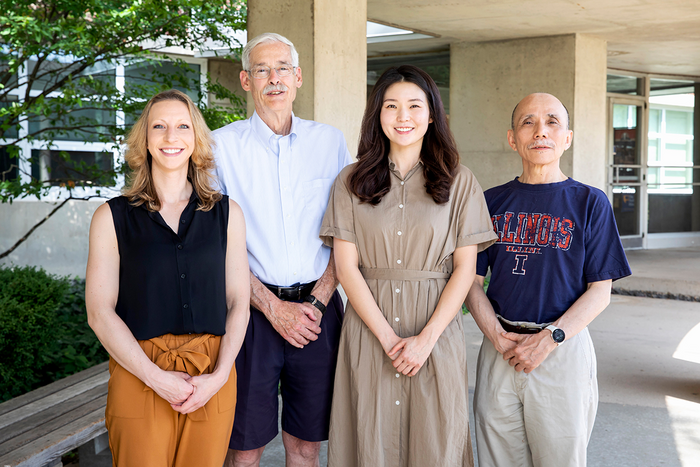CHAMPAIGN, Ill. — An individualized diet program that empowers users to create their own plan based on targeted levels of protein and fiber shows promise at helping people lose extra pounds and keep them off.

Credit: Photo by Michelle Hassel
CHAMPAIGN, Ill. — An individualized diet program that empowers users to create their own plan based on targeted levels of protein and fiber shows promise at helping people lose extra pounds and keep them off.
The Individualized Diet Improvement Program is a self-guided approach that involves easy-to-use tools, according to the nutritionists at the University of Illinois Urbana-Champaign who created iDip.
“Our program does not provide or offer a strict diet plan or recipes for participants to follow,” said graduate student Mindy H. Lee, a co-author of the study. “We’re not excluding food groups as low-carbohydrate or low-fat plans do. The primary goal is to empower dieters to make informed choices so they can create their own sustainable weight-management program.”
Diet flexibility is key to making weight loss and maintenance sustainable, said study co-author Manabu T. Nakamura, a professor of nutrition at the university.
“The problem with currently available commercial weight-loss programs and products is that the magnitude of dieters’ weight loss is not great,” he said. “The more serious problem is that people can’t maintain it.
“If they follow the program or consume only the foods they’re told to for four or six months, they lose a certain amount of weight, but when they quit following the program or buying the products the weight comes right back. And that’s very discouraging for them.”
A visual tool developed by the researchers plots dieters’ protein and fiber intake, helping them choose foods that reduce their overall calories without reducing their protein and fiber.
Based on the dietary guidelines issued by the Institutes of Medicine, the iDip visual tool plots foods’ protein and fiber densities per calorie along with a target range for meals. The tool helps users create meals with about 80 grams of protein and 20 grams of fiber daily while limiting their intake to less than 1,500 calories per day.
Ranging in age from 24-59, all of the participants in the initial clinical trial had a body mass index greater than 28, placing them in the overweight or obese categories. According to participants’ self-reports, they had obesity-related health conditions such as high blood pressure and had tried two or more commercial diet programs or weight-loss products in the past.
Participants weighed themselves daily at home using a wifi-enabled scale, and the researchers provided each person with a chart every week showing their weight-loss progress, intended rate of loss and a six-month goal weight.
The daily weighing and weekly feedback charts allowed participants to monitor their progress without counting calories or completing a daily food journal, which can be tedious, time consuming and inaccurate, Nakamura said.
“In the entirety of human history, no culture counted calories,” Nakamura said. “And we know it isn’t sustainable over the long term. But weighing daily and recording the trend is a very important tool. It’s easy to sustain over one’s lifetime and is a good habit for anyone who wants to lose weight or maintain their weight.”
During the 12-month program, participants attended 22 educational sessions led by registered dietitians. These included 19 group lectures that offered nutrition information and explained how to apply this knowledge to grocery shopping and cooking. The lectures also focused on the benefits of physical activity and how to navigate weight-loss plateaus and maintenance.
Additionally, each participant received three individual coaching and advising sessions.
According to the study, 12 of the 14 participants finished the program. Half achieved the researchers’ goal of losing at least 5% of their body weight and maintained it during the six-month follow-up phase, Lee said.
Although the number of participants was small, the researchers said it demonstrated the program’s feasibility.
A third clinical trial of iDip currently is underway with 30 participants, and the results are even more promising. At the conclusion of the six-month weight-loss phase, participants have lost about 6.5% of their body weight, Lee said.
Other co-authors of the paper were John Erdman, a professor emeritus of food science and human nutrition; and alumni Catherine C. Applegate and Annabelle L. Shaffer.
The study was published in the journal PLOS ONE.
Journal
PLoS ONE
DOI
10.1371/journal.pone.0267876
Method of Research
Randomized controlled/clinical trial
Subject of Research
Animals
Article Title
A feasibility study to test a novel approach to dietary weight loss with a focus on assisting informed decision making in food selection
Article Publication Date
26-May-2022
COI Statement
The authors declare no conflicts of interest.




